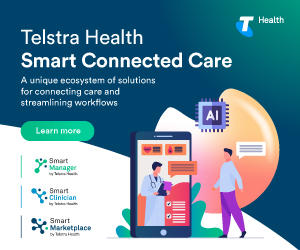Will genomics revolutionise healthcare?
Genomics is becoming increasingly more pervasive in the future of healthcare, as more government bodies and healthcare organisations start preparing for a new era of precision medicine.
Shifting focus to preventing diseases
A recent report released from the Australian Council of Learned Academies (ACLA), The Future of Precision Medicine, predicts Australians will be able to have their genomes mapped within the next 25 years, and health systems will be required to offer this high tech test, as healthcare moves more towards a focus on preventing diseases.
Precision medicine, the report said, encompasses a broad remit, including genomics and other ‘omics’ (metabolomics, microbiomics, proteomics and transcriptomics), epigenetics, gene editing technologies such as CRISPR and the development of targeted therapies specific to an individual’s disease profile.
And advances in genome sequencing and the associated field of genomics are set to offer us better understanding of how diseases affect different individuals. With the genetic profile of a person’s disease, and knowledge of their response to treatment, it should be possible to find out more about the likely effectiveness of medical interventions such as prescribing drugs to treat a disease (pharmacogenomics).
Genomics and cancer
Already, advances are being seen in clinical approaches to cancer, as well as rare single-gene disorders that are a significant cause of intellectual and physical disability in children.
In Australia, Melbourne-based genomics expert Dr Ryan van Laar is already well on his way to making a new test for melanoma available, with the announcement that his ground-breaking discoveries will be published in the British Journal of Cancer.
Using the new genomics technology, ‘Melaseq’ pinpoints the molecular fingerprint of melanoma, even in the earliest stages. It is anticipated Melaseq could increase early detection by being used in the screening of high-risk individuals, and post-surgery patients could also be tested to see if treatment was successful.
Government taking genomics seriously
Moving forward, it’s becoming even more evident the Government is taking genomics more seriously, with the recent Federal Budget showcasing a National Health and Medical Industry Growth Plan of $1.3 billion, including a ground-breaking $500 million Australian Genomics Health Futures Mission. The Government has also announced it has appointed an expert advisory committee for the Genomics Health Futures Mission, led by of Professor Ian Frazer AC.
The Government has also released its Digital Health Action Plan, which explains why it is encouraging clinicians to embrace MyHR, and why the platform will become a hub for innovation, enabling the development of new health apps and tech tools, with scope to support further innovations in precision medicine and genomics.
“Genomics is the foundation of precision medicine which means faster diagnosis and targeted treatment to improve health outcomes,” Federal Health Minister Greg Hunt said. “Funded through the Medical Research Future Fund, the Genomics Health Futures Mission will help Australians to live longer and better through genomics technology, which will enable practitioners to tailor treatment for each patient, monitor and manage risk, and potentially cure a wide range of diseases.”
“The Mission will help save or transform the lives of more than 200,000 Australians through research into better testing, diagnosis and treatment.”
The first genomics project will be Mackenzie’s Mission, with $20 million being provided for a pre-conception screening trial for rare and debilitating birth disorders including Spinal Muscular Atrophy, Fragile X and Cystic Fibrosis.









